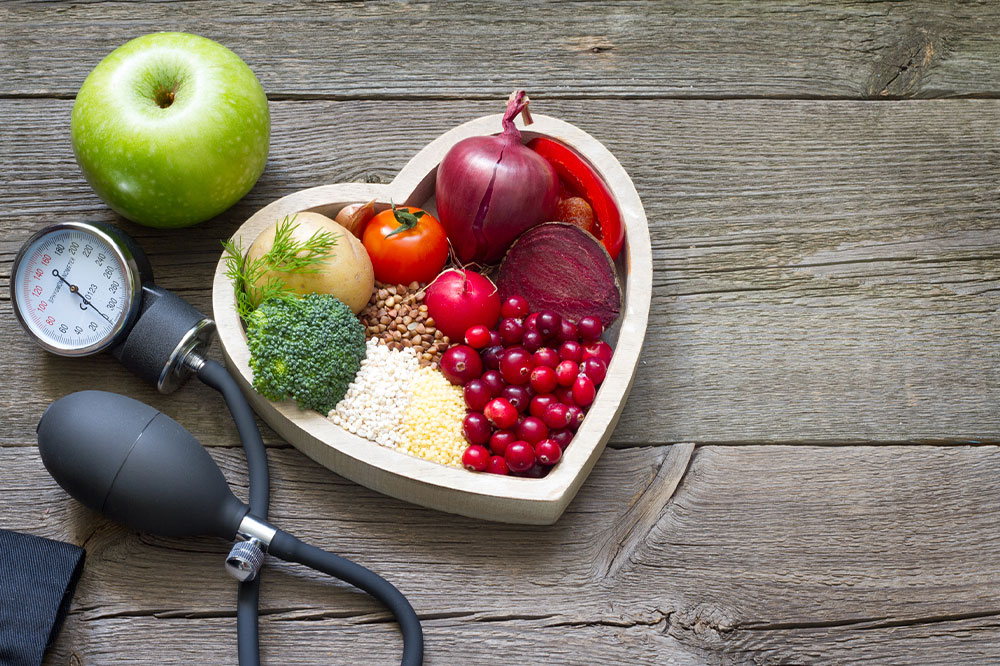8 Ways to Lower Cholesterol Levels Naturally
Cholesterol is a waxy, fat-like substance mainly produced by the liver. It often gets a bad rap, but we need cholesterol to function. There are two types of cholesterol: LDL (or bad cholesterol) and HDL (good cholesterol). The former causes plaque in the arteries, increasing heart disease risk, while the latter helps remove bad cholesterol from the bloodstream. Besides treatment, there are several natural ways to lower LDL cholesterol and increase HDL cholesterol levels.
Follow a plant-based meal plan
One of the best ways to lower cholesterol levels naturally is to follow a plant-based meal plan. This means only choosing foods sourced from plants, such as fruits, vegetables, nuts, seeds, and whole grains.

Exercise regularly
Being physically active is vital for maintaining healthy cholesterol levels. Regular workouts help reduce harmful LDL and increase beneficial HDL while boosting overall health. But one must include both aerobic and resistance exercises in the workout routine for the best benefits. Aerobic exercises are any type of cardio, such as brisk walking, swimming, running, and cycling.
Load up on omega-3s
Omega-3 fatty acids are probably the healthiest type of fats. While they do not affect LDL cholesterol, they lower triglycerides, a type of fat in the blood that can increase the risk of heart disease. The best source of omega-3 is fatty fish like salmon, mackerel, sardines, tuna, and herring. Those who do not prefer fish can benefit from plant-based omega-3s, such as those found in flaxseeds and walnuts. Flaxseeds are harvested from a natural herb and can not only lower cholesterol but also help fight diseases like cancer and cardiovascular conditions. Its disease-fighting ability can be attributed to a polyphenolic compound it contains.
Steer clear of trans fats
Trans fats are considered the most unhealthy fat. They are unsaturated fats modified by a process called hydrogenation. Hence, they are sometimes referred to as “hydrogenated oils” or “partially hydrogenated vegetable oil.” Check the label of packaged foods for these terms to avoid hidden trans fats. People with unhealthy cholesterol levels must avoid this type of fat altogether because it can increase total and bad cholesterol while lowering the amount of good cholesterol. Everyday foods that contain trans fats include margarine, pastries, donuts, French fries, and fried chicken.
Increase soluble fiber intake
Soluble fiber is a fiber that can dissolve in water and other bodily fluids. When it reaches the intestines, soluble fiber binds to the cholesterol, causing it to be excreted in the stool. This makes it a crucial part of a cholesterol-lowering meal plan. Some nutritious foods rich in soluble fiber include oats, barley, quinoa, whole-grain bread, kidney beans, lentils, chickpeas, apples, pears, and Brussels sprouts. One must avoid too much of this fiber at a time, as it can cause constipation, bloating, and stomach pain. It is advisable to increase intake gradually.
Limit saturated fats
To achieve and sustain healthy cholesterol levels, one must avoid saturated fats as much as possible. This type of fat can boost LDL cholesterol. Foods high in saturated fats include beef, pork, lamb, skinned chicken, butter, cheese, palm oil, and coconut oil. Those who cannot avoid meat should choose healthier alternatives, such as skinless chicken, skinless turkey, shrimp, crab, salmon, herring, and trout.
Minimize mental stress
When it comes to managing cholesterol, one must not ignore mental health. Studies indicate that psychological stress, whether long- or short-term, can increase both LDL and triglycerides. Furthermore, stress causes the body to produce hormones that can increase blood pressure, heart rate, and the risk of heart attack and stroke. So, addressing mental health issues and keeping stress at bay are among the best ways to lower cholesterol naturally. Individuals can practice relaxation techniques like meditation, yoga, tai chi, and deep breathing to calm the mind and reduce psychological stress. Each technique works differently, and one should choose what works best for them.
Cut down on sugar
Too much sugar can be as harmful as trans and saturated fats. It can cause the liver to produce more LDL cholesterol and lower the amount of HDL simultaneously. Moreover, excess sugar in the body can raise the levels of triglycerides and block the enzyme that breaks them down. A simple way to reduce sugar intake is to cut out sugar-loaded foods and beverages, such as candies, baked goods, desserts, sodas, and fruit juices. Replace added sugar with naturally-sweet alternatives like honey and unsweetened applesauce.

